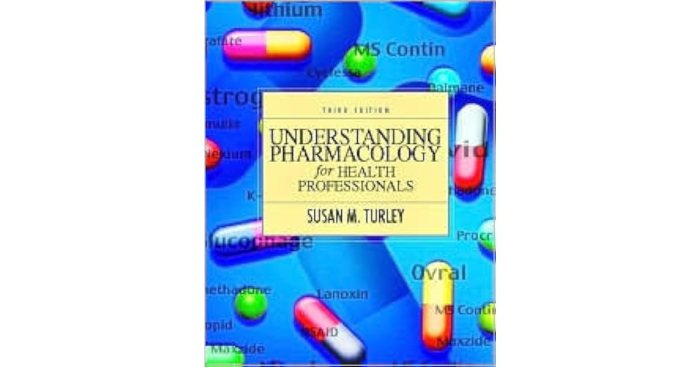Understanding pharmacology for health professionals 6th edition – Understanding Pharmacology for Health Professionals, 6th Edition, is a comprehensive resource that provides healthcare professionals with a thorough understanding of pharmacology and its applications in clinical practice. This authoritative text covers the fundamental principles of pharmacology, drug classes and therapeutic uses, clinical applications, and special considerations for different patient populations.
With a focus on the practical application of pharmacological principles, this book guides readers through the rational use of drugs, including drug selection, dosing, and monitoring. It also explores emerging trends and advancements in pharmacology, highlighting the potential of new drugs and therapies in improving patient outcomes.
1. Introduction
Pharmacology is the study of drugs and their effects on living organisms. It is a vital field for health professionals, as it provides the knowledge and skills necessary to safely and effectively use drugs to treat and prevent disease.
The 6th edition of “Understanding Pharmacology for Health Professionals” has been updated to reflect the latest advances in the field. It includes new chapters on emerging topics such as personalized medicine and the use of technology in pharmacology.
2. Basic Principles of Pharmacology
Drug Absorption, Distribution, Metabolism, and Excretion (ADME)
The ADME process describes how drugs are absorbed into the body, distributed to different tissues, metabolized, and excreted. Understanding ADME is essential for predicting the effects of a drug and for designing effective drug therapies.
Mechanisms of Drug Action
Drugs exert their effects by interacting with specific molecules in the body. These interactions can lead to changes in cell function, which can in turn produce therapeutic effects.
3. Drug Classes and Therapeutic Uses

Drugs are classified into different classes based on their pharmacological properties and therapeutic applications. The major drug classes include:
- Antibiotics
- Analgesics
- Anti-inflammatories
- Antihypertensives
- Antidepressants
Each drug class has its own unique set of indications, contraindications, and adverse effects.
4. Clinical Applications of Pharmacology

Rational Use of Drugs
The rational use of drugs involves selecting the right drug for the right patient at the right dose and for the right duration. This requires a thorough understanding of pharmacology and the patient’s individual needs.
Drug Selection, Understanding pharmacology for health professionals 6th edition
Drug selection is based on a number of factors, including the patient’s diagnosis, age, weight, and other medical conditions. The health professional must also consider the drug’s efficacy, safety, and cost.
5. Special Considerations in Pharmacology: Understanding Pharmacology For Health Professionals 6th Edition
Pediatric Pharmacology
Pediatric pharmacology is the study of drugs in children. Children’s bodies are still developing, so they may respond differently to drugs than adults. It is important to be aware of these differences when prescribing drugs for children.
Geriatric Pharmacology
Geriatric pharmacology is the study of drugs in the elderly. Elderly patients are more likely to have multiple medical conditions and to be taking multiple medications. This can make it difficult to predict the effects of a new drug.
6. Future Directions in Pharmacology
Pharmacology is a rapidly evolving field. New drugs and new technologies are being developed all the time. These advances are leading to new and more effective ways to treat and prevent disease.
Personalized Medicine
Personalized medicine is an approach to healthcare that takes into account the individual characteristics of each patient. This approach can be used to tailor drug therapy to the specific needs of each patient.
Query Resolution
What are the key principles of pharmacology?
The key principles of pharmacology include drug absorption, distribution, metabolism, and excretion (ADME), as well as the mechanisms of drug action and their effects on the body.
How are drugs classified?
Drugs are classified into different classes based on their pharmacological properties and therapeutic applications. These classes include antibiotics, analgesics, anti-inflammatories, cardiovascular drugs, and many others.
What are the clinical applications of pharmacology?
Pharmacology plays a crucial role in clinical practice, providing guidance on the rational use of drugs, including drug selection, dosing, and monitoring. It also addresses specific considerations for different patient populations, such as children, the elderly, and pregnant women.
